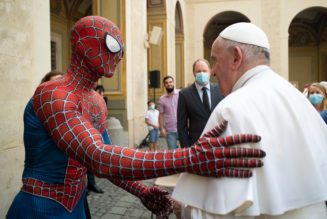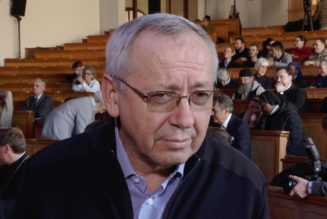, December 31, 2020

The Feast of the Epiphany is the great culmination of history and is meant to inspire a turning point in our day, too.
The key is to stop acting like self-seeking and ignorant people of old and start acting like the honest seekers of truth that changed the world.
All the world was well prepared for Jesus Christ’s coming.
The 500 years before the coming of Christ had remarkable intellectual activity around the world. First, Isaiah (who died in the 600s B.C.) and his disciples predicted the Messiah. Then, Confucius (551-479 B.C.) his contemporary, Lao Tzu,and their followers taught order and harmony in the East while Socrates (470-399 B.C.) and those who followed him brought their ethical system to the West.
The stage was set when Augustus Caesar (31 B.C.-A.D.14) became the first Roman emperor and Jesus was born. The early Christian communities would have thrilled to note the differences between Caesar and Jesus. Gaius Octavius, the adopted son of Julius Caesar, took the grand name Augustus Caesar and the even grander title divi filius, “son of God” while Jesus, the true son of God, was adopted by a carpenter and received a name provided by an angel.
They would have thrilled even more at the story of the Magi. The Romans believed in signs and omens, and the star was the greatest sign of all. Christians were arrested for refusing to offer incense to the gods and here were sages from the east offering incense to the baby Jesus.
Augustus Caesar and the rulers who followed him brought the Pax Romana (Roman Peace) through conquest and violence. Jesus brought unity through faith and faced the cruel violence of a petty king with no protection but what Joseph and Mary could give him.
Herod and the Magi offer two models that are still relevant today.
King Herod “the Great,” the antagonist of the Christmas story, is the perfect representation of the old dispensation, the tribal world where the great and mighty dynastic families stamped out threats and crushed their opposition. The Magi is the perfect representation of the Christian dispensation, where the future is in the hands of humble seekers who prostrate join the Holy Family of Jesus.
As Erasmo Leiva-Merikakis (now Father Simeon) put it, “In the face of the ultimate, one must either adore or destroy.” The Magi, the mysterious visitors from the East, decided to adore. Herod was determined to destroy, ordering the massacre of the innocents to get at Jesus.
Their examples are also on point for us. We live in a time that is slipping back to the old ways, a world filled with Herods who are convinced that we must slaughter the unborn to protect ourselves.
Our attitude of skepticism matches Herod’s, too. Many of us think there is not enough evidence to believe in God, who hides himself. But God is “hidden” in our time the way he is “hidden” in Bethlehem. He is there to be found by anyone who is willing to seek him honestly.
Herod sought the truth but never opened himself to it. Remaining locked in his own world he was “greatly troubled” by news of the Savior, “called secretly” on experts,“ascertained” the star’s appearance because he apparently didn’t see the star for himself, and lied about his intentions to the Magi.
Compare the verbs the Gospel uses for the Magi’s quest. They had already “set out” and “were overjoyed” at seeing the star. They “entered the house” where the Holy Family were they “saw the child,” “prostrated themselves,” “opened their treasures” and “offered him gifts.”
The Church today has to become less like Herod and more like the Magi.
The Church goes astray when it is fails to give Jesus Christ the Magi’s gifts. They give him gold because he is a king, frankincense because he is a priest, and myrrh because he will sacrifice his very life for his people.
Too often, the Church hordes its gold, becoming so enamored of worldly things that it refuses to acknowledge the kingship of the babe in a manger. When we give too much obedience to the world and too little to Jesus, avoiding lawsuits and fines takes precedence over paying homage to Christ the King in our schools, hospitals and parishes.
The Church neglects its incense when we refuse to properly worship Jesus Christ with reverence and awe, shying away from robust religious observance. The Magi made a spectacle of themselves, processing in strange clothes with camels and prostrating themselves; we feel silly when we publicly show our faith and worry about being too showy with vestments and processions and blessings.
Last, the Church stows its myrrh when we avoid mortification and sacrifice. It might start by skipping the yearlong Friday sacrifice of meat (or an alternative) that canon law demands. Soon we forget that denying ourselves and “offering it up” are a key part of Catholic living and find ourselves enslaved to our appetites.
In short, the Church is too willing cut deals with the Herods of the world, the devil, and the flesh. Instead of doing what the Magi did, and discreetly avoiding him, we give in to his demands. Our version of the Epiphany tale takes a bad turn in which the Magi spend their time wining and dining Herod instead of seeking out the Christ child’s stable.
This is not a problem confined to “liberal Catholics” or “conservative Catholics” but applies to all of us.
The readings today remind us that it is important to be both faithful to the strictness of the truth and open to the differences of others.
In the First Reading Isaiah predicts a day when the truth given to the Chosen People of Israel will be opened to all. “[N]ations will walk by your light, and kings by your shining radiance,” and “caravans of camels shall fill you … bearing gold and frankincense and proclaiming the praise of the Lord.”
In the Second Reading, St. Paul sees this happening in his day. He tells the Ephesians, and us, that the mystery of the Gospel “is now revealed to his holy apostles and prophets by the Spirit: that the Gentiles are coheirs, members of the same body, and copartners in Christ Jesus through the Gospel.”
For us, that means the Church has to be “conservative” enough to refuse to compromise the faith of the apostles guaranteed by the Holy Spirit, the magisterium and “liberal” enough to welcome all comers to be “coheirs,” members of the same body.
The Magi are a sign of this in the Gospel of Sunday, and in the history of the Church. They were a sign of a cataclysmic event in history, the Jewish covenant being opened to the Gentiles. But they were also a sign that Jesus Christ is the only way, the only truth, and the only life for our souls.
At the end of the Gospel the Magi “departed for their country by another way.” In 2021, may Catholics in America follow their example and take a new way to the future.
Tags: Epiphany Sunday (Year B), prayer, Sunday Gospel, Sunday Readings
Never miss a post! Subscribe below to our weekly newsletter.
Related
Join Our Telegram Group : Salvation & Prosperity








